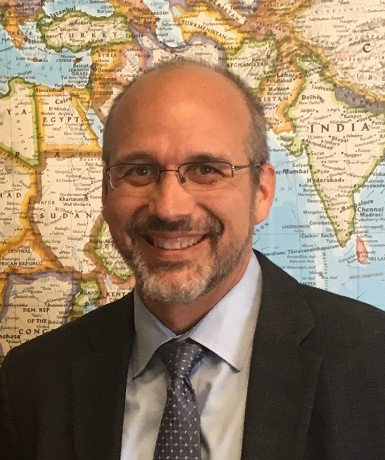|
 Earlier this fall, we celebrated an exciting election. No, not the U.S. midterm elections or the Brazilian general election, though they were interesting enough. I am talking about TESOL’s election—where you, our members, choose a new president-elect, three new members of the TESOL Board of Directors, and a brand new Nominations Committee. TESOL elections have little in common with national elections, and, thankfully, they lack the partisanship and divisiveness we see too often in national politics. But like national elections, TESOL’s elections give us the opportunity to engage and raise our voices. They let us define the kind of association we want to be. And that is critically important. Earlier this fall, we celebrated an exciting election. No, not the U.S. midterm elections or the Brazilian general election, though they were interesting enough. I am talking about TESOL’s election—where you, our members, choose a new president-elect, three new members of the TESOL Board of Directors, and a brand new Nominations Committee. TESOL elections have little in common with national elections, and, thankfully, they lack the partisanship and divisiveness we see too often in national politics. But like national elections, TESOL’s elections give us the opportunity to engage and raise our voices. They let us define the kind of association we want to be. And that is critically important.
In September, I laid out TESOL’s new Strategic Plan, and last month I focused on our Global Presence and Connectivity. This month, I want to address another important outcome we hope to achieve. By raising the voices of our members, we seek to become the leading advocate for English language teaching professionals and learners worldwide. Though raising our voices in elections, whether for an association or parliament, is important, voice is so much more than that.
It means speaking up to denounce injustices that threaten our students.
It means rising to defend our values.
And it means standing to support our fellow teachers.
I want to encourage all of you to participate in advocacy-themed sessions at the TESOL Convention and attend our annual Advocacy & Policy Summit in June. At the summit, we will focus on important legislative goals, such as passing the Reaching English Learners Act, and administrative objectives, like a strong and independent Office of English Language Acquisition in the U.S. Department of Education. We will also help provide you with the skills and knowledge to advocate in your own context and in your own way. Because advocacy, of course, must mean more than just promoting national policies. It must mean fighting for students in the classroom and in the community. It must mean promoting the expertise of TESOL professionals to principals, school boards, and fellow teachers. As David Cutler, our policy and communications manager, writes in his new advocacy blog, it must mean doing “whatever we can to ensure the success of every English learner.” And, most important, it is about living, breathing, and promoting our values in all of our professional interactions.
Another way that TESOL is helping to raise our collective voice is through the Action Agenda for the Future of the TESOL Profession. The agenda outlines five priorities that all of us—including individuals, organizations, and policy-making bodies—can embrace. The priorities are:
- Strengthen the status and visibility of the profession
- Redesign English language education programs to foster global engagement
- Mobilize leaders to confront and embrace the challenges and complexities of English language teaching
- Expand capacity for inclusive and comprehensive research
- Cultivate a culture of innovation that is responsive to global trends
We invite you to visit www.tesol.org/actionagenda to identify which action steps you and your organization can adopt.
Who has the strongest voice? Who are our best advocates? We are. TESOL members are. Thank you for raising your voices and advocating for yourselves, our colleagues, and our students every single day. If TESOL is to become the leading advocate for English language teaching professionals and learners worldwide, we need everyone to embrace and celebrate this fundamental component—advocacy—of TESOL educators.
Christopher Powers
TESOL Executive Director
Email: cpowers@tesol.org
Twitter: @TESOL_Powers
|